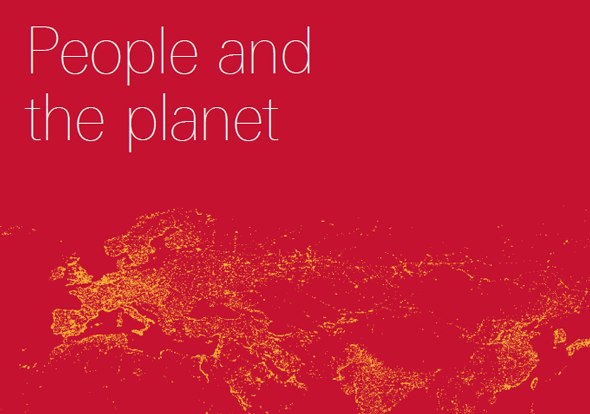The original version of this article, by John May, appeared on the Center for Global Development’s Global Health Policy blog.Population issues have been conspicuously absent from the discussions on the environmental sustainability of our globalized economy in the
run-up to the Rio+20 Conference on Sustainable Development, which will take place in Brazil,
June 20-22, under the auspices of the United Nations.
Fortunately, the new report, People and the Planet by the Royal Society, should help change this woefully shortsighted approach. The report demonstrates clearly and convincingly that demographic trends cannot be separated from consumption patterns, and that there is no chance to achieve a path of equitable and sustainable development without tackling population growth and consumption at the same time. In short, population and the environment cannot and should not be considered as two separate issues.
This strong and long overdue pitch to bring back the “p” word into the environmental debate is most welcome. In recent decades, international attention has shifted from rapid population growth to other urgent issues, such as the HIV/AIDS epidemic, humanitarian crises, climate change, and good governance. But reproductive health and voluntary family planning programs are still very much needed, especially in high fertility countries, and they require political leadership and long-term financial commitment. Broader access to family planning services will be needed to accelerate the decline of high fertility rates, particularly in countries where unmet needs for contraception are high.
Continue reading at the Center for Global Development.
Image Credit: People and the Planet cover, courtesy of the Royal Society.

 A Publication of the Stimson Center.
A Publication of the Stimson Center.




